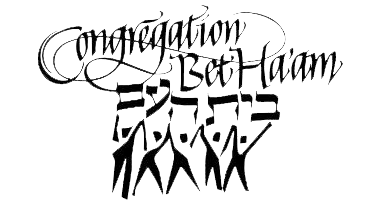By Lynn Urbach
As we approach Rosh Hashanah, the head of the Jewish Year, it’s a good time to reassess our lives. Yes, the Days of Awe and Yom Kippur are times to ask forgiveness of those we have hurt, to seek atonement for our missteps. They are also the time to evaluate how we are living our lives. In our day-to-day lives are we embodying our ethics, following our own moral compass? What do we take into account when we make decisions? Are we satisfied with our answer? What do we regret? What do we wish we had done differently? And what will we work on in the coming year?
I’ve made a lot of decisions in my life that I regret. I can’t go back and redo them. But I can look back and think about why I regret them and why I made the wrong decision. Part of my problem was that I often chose the easy path. For instance, you might not think that choosing to get a PhD in physics was the easy path. But after two years of working at the IBM Research facility I knew I had to leave. I had a choice: I could look for a new job or go on to grad school. I had no idea what I really wanted to do, what kind of job I should look for, or even how to go about looking beyond looking at the classifieds. (Jobs.com and LinkedIn certainly were not available back then!) School meant no decisions. It seemed so easy.
Before I returned to school, I spent four months in Israel. There I became close with a person named Ribi and we had a lot of life conversations. She asked, “Why are you going back to the States to go to school? Why aren’t you…” and then she offered all kinds of choices. As I recall, my only answer was, “I already have a roommate and she has already found us an apartment.” To me, going to graduate school was the easy thing to do. I knew how to be a student. Several years in, I knew it was a mistake, but I was too scared to jump ship.
Fast forward several decades: Nathan Szanton asked me if I was interested in being vice president to be followed by being president of Bet Ha’am. My kids were finally out of the house. Life had become so much easier and free; there was so much less responsibility. Did I really want to take on up to six years of major responsibility? I had just started, finally, to get exercise on a regular basis, and my husband, Jerry, was concerned that if I added anything more to my calendar, I would give up on that. Not to mention the sacrifice Jerry himself would have to make, as I would have so much less time to spend with him.
So why, if it would clearly be easier not to accept the nomination, did I say yes?
Because I now I make decisions differently than I did when I was twenty-four. Now, I think about what I will think when I look back on my life and think about what I chose to do. What opportunities did I pass up in the name of ease, or expediency, or selfishness, or thinking of making someone else happy, but not about the decision that would be right for me? What legacy have I left, for my own children, for the many kids I have taught, for the community I cherish?
Over the past two years, I have asked many people about their thoughts regarding their involvement at Bet Ha’am. They frequently respond with “Oh yeah, I really do want to attend Shabbat services from time to time,” or “I’d like to be more involved, but I never seem to have the time.” As we enter the Hebrew month of Elul, we prepare for the High Holy days, a time of self-evaluation, introspection, and contemplation. I challenge you to consider any difference between the role our Jewish community currently plays in your life and the life of your family, and what you may someday regret.
Say not: When I have time I will study because you may never have the time. ~Pirkei Avot, ch. 2

